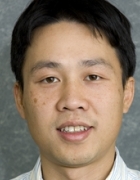Identifying the Killing Pathway that Mediates CD4 T-cell Depletion in HIV-Infected Lymphoid Tissues

Abstract
Progressive depletion of CD4 T cells is a hallmark of untreated acquired immune deficiency syndrome (AIDS), but the mechanism of CD4 T-cell death by HIV remains poorly understood. While HIV directly infects and kills CD4 T cells, the number of productively infected cells in vivo cannot account for the massive CD4 T-cell losses that occur. To better understand how HIV infection depletes CD4 T cells, we used primary human lymphoid aggregate cultures (HLAC) from human tonsil and spleen tissue. Using this system three surprising discoveries emerged. 1) Quiescent 'bystander' CD4 T cells, which are not permissive to productive X4-HIV infection, die in huge numbers, but their death involves abortive infection and accumulations of incomplete cytosolic HIV DNA. 2) Rather than dying due to a toxic action of products encoded by HIV, these CD4 T cells die as a result of a powerful host innate immune defense program launched against the virus. This program involves production of interferon-?, and activation of caspase-3 and caspase-1 3) Ultimately, this response leads to inflammasome assembly and caspase-1 activation that promotes release of bioactive IL-1? and pyroptosis, an intensely inflammatory form of programmed cell death. These findings raise several key questions. How the cytosolic DNA is sensed? What inflammasome is activated in these dying cells? I propose to apply biochemical and molecular approaches to isolate the cytoplasmic sensor(s) that recognize HIV DNA reverse transcripts, and the inflammasome that activates caspase-1 in response to such DNA intermediates. Together, these studies promise to provide exciting new perspectives on HIV-induced cell death, and potentially open the door to use for an entirely new calls of 'anti AIDS' drugs agents that would curb CD4 T-cell loss and suppress the inflammatory response that is pivotal in HIV pathogenesis.